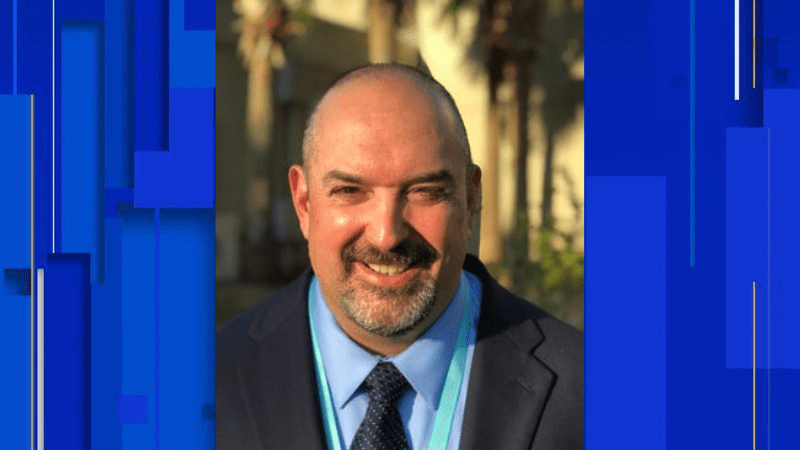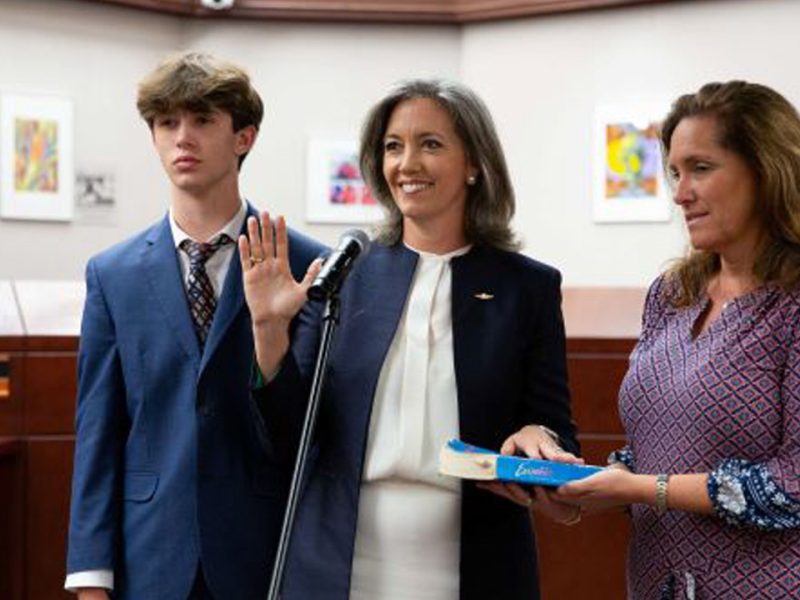Lake County lawmaker calls for governor to remove Polk schools’ new superintendent
The Ledger | By Kimberly C. Moore | July 21, 2021
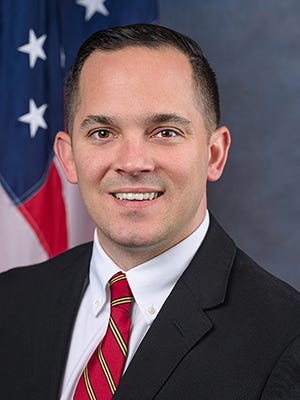
LAKELAND — A Lake County state lawmaker is calling for Gov. Ron DeSantis to remove newly installed Polk County Public Schools Superintendent Frederick Heid from his job because Heid is participating Thursday evening in an informational forum about Critical Race Theory, hosted by the NAACP’s Lakeland chapter.
Terry Coney, president of the Lakeland National Association for the Advancement of Colored People, organized the event to discuss publicly “what Critical Race Theory is, what it isn’t, and what is all of the fuss about,” according to the event flier.
“We’re not trying to push Critical Race Theory, we’re not trying to get Polk County Public Schools to adopt Critical Race Theory,” Coney said in a Wednesday morning phone call. “This started out as an education event to educate the community on what Critical Race Theory is and to debunk a bunch of misinformation out there. He was invited as another means to introduce him to the community. And give him a chance to talk about…teaching African American history in Polk County.”
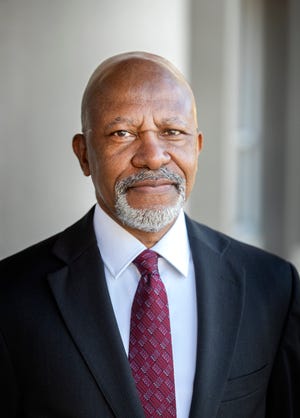
But Rep. Anthony Sabatini, R-Howey-in-the-Hills, sent a letter to DeSantis Monday, saying, “This behavior is completely unacceptable for a school superintendent. Critical Race Theory is fancy academic jargon for anti-white hatred and has no place in our society — much less our schools. Based off this information and the callers’ wishes, Superintendent Frederick Heid needs to be immediately removed from his position and his employment must be terminated.”
In addition to Heid, who was hired by the Polk County School Board and officially began his job July 1, two University of South Florida professors are speaking. Vonzell Agosto is associate professor of curriculum studies/educational leadership and policy studies, while Dana Thompson Dorsey, who holds a law degree, is the director of the David C. Anchin Center for the Advancement of Teaching and an associate professor of educational leadership and policy studies.
Heid said he was invited to speak at Thursday’s forum.
“Critical Race Theory is not included anywhere in our curriculum,” he said. “All of our lessons and activities are focused on the standards set forth by the Florida Department of Education. My intention is to use this forum as an opportunity to reassure our stakeholders that we do not teach Critical Race Theory. I will also explain how PCPS offers a wide variety of inclusive lessons that recognize and celebrate the vast diversity in our community. My role in this forum is limited to that aspect alone.”
Teaching Critical Race Theory banned in Florida
In June, DeSantis called for a ban on teaching “Critical Race Theory” and the Florida Board of Education, which oversees education in Florida public schools, voted in new rules to prohibit lessons that board members said could “distort historical events.”
Critical Race Theory has never been a part of the learning and teaching standards established by Florida Department of Education officials, although Black history is.
According to Gary Peller, a longtime professor at Georgetown University Law Center who has studied the issue since the early 1980s, Critical Race Theory “is an approach to issues of racial justice that was first developed in the late 1970s and 1980s by legal scholars in law schools to account for the racial inequalities that remained after formal segregation in the United States ended.”
Peller explained in a telephone interview with The Ledger in June that the Civil Rights movement ended the laws based in racism, but not the social practices by individuals, businesses or institutions. While the “whites only” signs were removed from businesses, water fountains and waiting rooms, it didn’t stop employers from hiring only white job candidates or banks from refusing loans to Black customers.
Sabatini represents Lake County, from Groveland to Minneola to Four Corners. His district stops at the Polk County line.
In a text message on Wednesday morning, Sabatini said he has received “dozens” of complaints, although when asked by The Ledger to speak with someone who complained, Sabatini did not respond.
This is not Sabatini’s first brush with notoriety. In May 2020, as Black Lives Matter protests and riots swept the nation following George Floyd’s murder by a white police officer in Minneapolis, Sabatini tweeted a photograph of an AR-15 rifle and, “Attention potential ‘protesters’ coming near Lake County, FL. This is an AR-15—this will be a very common sight upon illegal entry at any Lake County business—FYI!”
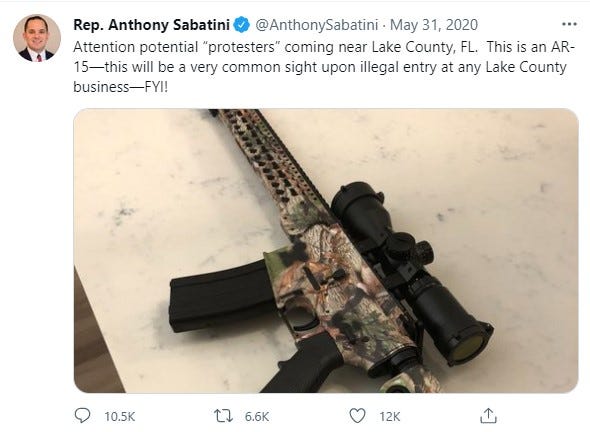
In February, he proposed a bill to rename U.S. 27, which runs the length of the state, the “President Donald J. Trump Highway.”
That bill, along with 19 other pieces of Sabatini’s proposed 2021 legislation, died in subcommittee without being heard. Another bill was voted down in committee, which would have dissolved the North Lake County Hospital District and transfer its assets, liabilities and district responsibilities to the Lake County commissioners. Sabatini saw one bill pass, which created Florida National Guard Day. Sabatini is a captain in the Florida National Guard and has served since 2008. He said he has not done any tours in Iraq or Afghanistan.
Sabatini, who is running for Congress, graduated from the University of Florida in 2012 and received a law degree from the UF Levin College of Law in 2017.

African American History still taught
DeSantis’ order to ban Critical Race Theory from public schools came one year after he signed into law House Bill 1213 — the Educational Instruction of Historic Events — which in part requires the Florida Department of Education’s African American History Task Force “to examine ways to include the 1920 Ocoee Election Day Riots (Massacre) in the required instruction of African American History.”
The Ocoee Massacre took place on Election Day, Nov. 2, 1920, when a white mob found two Black men who had attempted to vote and killed them, then poured kerosene on 20 buildings owned by Black residents, including two churches, a schoolhouse and a lodge hall, burning them all down — with the residents inside. At least 32 people died, although some put the toll higher at 35, including women, children and a mother with her newborn infant.
State leaders said what DeSantis and the Florida Board of Education have done regarding Critical Race Theory will not affect what the African-American History Task Force is doing or the teaching of Black history in Florida schools.
The task force was assembled in the mid-1990s, under Gov. Lawton Chiles because the history of Black people in Florida was not being told, officials said. It was also when the Rosewood Massacre Report was issued.
The report detailed the killings of at least two dozen people and the destruction of the small, predominantly Black town of Rosewood, between Bronson and Cedar Key, which went on for a week, beginning Jan. 1, 1923. A mob of several hundred white men lynched a Black Rosewood man and then began searching for and killing other Black men. They burned down almost every structure in the town.
The official death toll in the January 1923 attack was eight — six black and two white — but several survivors recalled a plow being brought from Cedar Key to cover 26 bodies in a mass grave.
No arrests were made, and the smoldering ruins of the town were abandoned.

From Donald Trump to Barak Obama, critical race theory has become a talking point. Find out why is getting banned in classrooms across dozens of states. Just the FAQs, USA Today
Black History in Polk County
Polk County Public Schools have never taught Critical Race Theory, but they do teach Black history.
“Critical Race Theory is not in our curriculum because it’s not a standard,” said PCPS spokesman Kyle Kennedy, referring to Sunshine State Standards. “All of our lessons/activities are focused on the standards set forth by the Florida Department of Education. Our teachers can use supplemental learning materials regarding these topics if it is age appropriate, aligns to the standards and helps make the standards meaningful to all of our students.”
According to the state standards in CPALMS, history and social studies teachers can give lessons on a wide range of hundreds of topics, including:
• “Review causes and consequences of the Civil War.”
• “Distinguish the freedoms guaranteed to African-Americans and other groups with the 13th, 14th, and 15th Amendments.”
• Explain why support for the Ku Klux Klan varied in the 1920s with respect to issues such as anti-immigration, anti-African American, anti-Catholic, anti-Jewish, anti-women, and anti-union ideas.”
• And “Assess how Jim Crow Laws influenced life for African Americans and other racial/ethnic minority groups.”
See a selection of African American history lessons in Florida state standards here: https://www.cpalms.org/Public/PreviewCourse/Preview/13329
Polk County residents, lawmakers defend Heid
State Rep. Melony Bell, R-Fort Meade, defended Heid on Wednesday. In a text message to The Ledger, she said Heid is “simply showing up as a partner to have an informed dialogue about how Polk County teaches Black History currently. He would also have to explain that Critical Race Theory is college material and will not be taught in K-12. He is at the panel to simply share those facts, not in any way endorse CRT.”
Bell said she hasn’t spoken to Sabatini because she is on vacation.
Anita Carson, an active member of the Polk Education Association teachers’ union and a former School Board candidate, said she is “happy to have a superintendent who is engaged with hard topics and addressing them in our community.”
Heid has sat in on the first round of teacher contract negotiations, something his predecessor left up to district personnel.
“As of now, Mr. Heid hasn’t even spoken at the event and there are already calls for the governor to intercede to remove him,” Carson said. “I’d like to hear what he has to say. My guess is he will tell the truth, which is that our teachers teach the standards — which do not include the boogey man being laid out by those calling for actions against Mr. Heid.”
County Citizens Defending Freedom USA, a Facebook group founded by former Lake Wales Charter School District School Board member Jimmy Nelson, said he had an extended conversation with Heid Wednesday afternoon during an already scheduled appointment.
“What I learned from today’s discussion: 1.) Not everything we see on the internet and in social media is accurate, and some of it is actually untrue,” Nelson wrote in a Facebook post. “2.) The policy of the PCSB relative to Critical Race Theory is that PCPS will abide by Florida’s ban, and CRT it is not to be taught in Polk County Schools. 3.) Superintendent Heid will reiterate PCSB policy to any organization with which he communicates about this topic.”
Although Sabatini wrote a letter to the governor, saying Heid should be removed as superintendent, the governor does not have the power to do that because Heid was hired by the School Board.
State statutes show that the governor “may suspend from office any elected or appointed municipal official” for a variety of issues., including “malfeasance, misfeasance, neglect of duty, habitual drunkenness, incompetence, or permanent inability to perform official duties,” or whenever “any elected or appointed municipal official is arrested for a felony or for a misdemeanor related to the duties of office or is indicted or informed against for the commission of a federal felony or misdemeanor or state felony or misdemeanor.”



